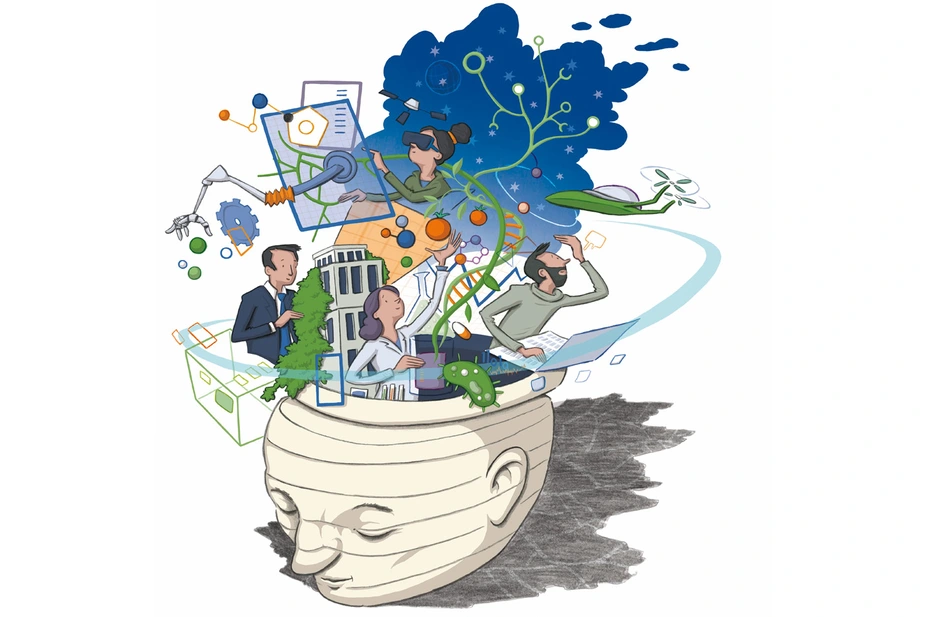Prepared for the champions league: Adlershof is ready to contribute to the Grand Challenges
Essay by Roland Sillmann, head of WISTA Management GmbH and WISTA.Plan GmbH
Adlershof achieved the mission it once set for itself. The site’s numbers are excellent. In 2018, the growth rate of Adlershof-based companies was at twelve percent, twice as high as that of the Chinese economy. The German Institute for Economic Research called Adlershof ‘a textbook-example of a regional innovation system.’ What more can we wish for?
Twenty-eight years ago, the government gave us the mission to strengthen Berlin’s economy. We successfully did so thanks to the commitment of our companies, scientists, and operators. Adlershof has fulfilled its task and become an engine for growth in the region.
Adlershof will continue to grow. The site now counts more than 20,000 employees, 6,500 students, and 3,700 ‘local residents’. The years to come will bring more jobs and more flats. However, there are also limits to the space for growth and to our infrastructure. What to do?
Representatives from science, private companies as well as the site’s management have been scrutinising these issues at great length. As one head of a research institute put it in a nutshell: are we playing to win Berlin, or are we prepared for the champions league? Are we competing with other players in Berlin, or will we work together to become global leaders?
Berlin’s policymakers have given a clear direction and aspire to turn the city into Europe’s research capital. One important step on this path was gaining the national excellence status for all three of Berlin’s major universities. They have the common aim of ‘turning Berlin into an integrated research environment that is especially dedicated to addressing global grand challenges.’
Berlin’s Senate Department for Economics also defined eleven so-called ‘Zukunftsorte’, the city’s places of future innovation, where cooperation between science and business is creating innovative products and services. The ‘Zukunftsorte’ are an important driver of Berlin’s economy. For Adlershof as an ideal type of a site creating future innovation, I see this as a prompt for working together more closely. Adlershof is already home to 90 world market leaders and 150 technology leaders. What we should do now is to help contribute to the world’s Grand Challenges with our research results, developments, products, and services. This is not only a business opportunity but our social responsibility. Many, including myself, rank Adlershof among the top three most important technology parks in Europe. If Adlershof is not ready for these challenges, who is?
Grand Challenges require smart minds. We must invest considerable efforts into securing new talent as well as our existing staff. I am convinced that these smart minds will come to Adlershof if we are successful in positioning ourselves as a place that gives answers to global questions.
The conditions for this are favourable. Recently, a team from the University of Greifswald and the Helmholtz-Zentrum Berlin (HZB) in Adlershof discovered bacteria that are capable of breaking down PET plastic into its basic components with the help of an additional enzyme. Another example is the Adlershof-based start-up Graforce, which has developed a new, resource-friendly procedure for producing hydrogen, combining it with biogas to create a new, cleaner fuel.If our space for growth is limited, our potential for qualitative growth is not. Just keep in mind the slogan of our ‘Zukunftsorte’: ‘The future will be good. Cause we’re shaping it.’
